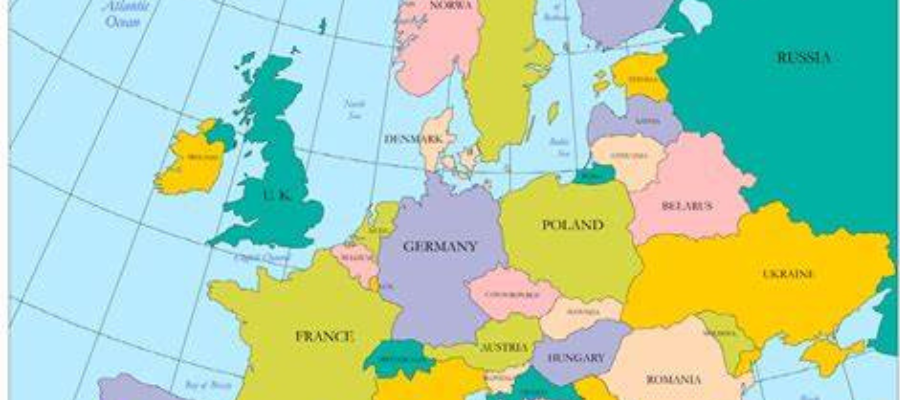The Rise of International Dual Degree Programs: A New Era in Global Learning


As the world becomes more interconnected, education is making a quantum leap beyond the boundaries of the conventional classroom. The most important trend in higher education of the past two decades is the rise of international dual degree programs. These programs allow students to earn two university degrees—typically from two nations—within a single, integrated learning experience.
Shaped by globalization, student demand, and institutional collaboration, dual degrees are transforming the way a higher education is acquired. But why are they so popular? What are they, their pros and cons, and future implications? Let’s look at this global academic trend and its impact on students, universities, and the workforce.
What Are International Dual Degree Programs?
Essentially, international dual degree programs (also double or joint degree programs) allow students to earn two academic degrees at the same time, typically from two institutions, perhaps located in two countries. The curriculum is structured in a way that it accommodates the two institutions’ academic requirements. Students typically remain at each institution—typically shifting between the host and home institutions.
These courses can be offered at the undergraduate, graduate, or doctoral level and aim at students who are undertaking studies that will gain from an international orientation, such as international business, political science, engineering, public policy, and environmental studies.
For example, a student might pursue a Bachelor’s in Engineering at a university in France alongside a degree from a partner university in Canada. Or a graduate could earn an MBA from a university in the United States and a Master’s in Management from a university in Singapore. These partnerships are often between institutions that share academic and global interests.
Why are Dual Degree Programs Becoming So Popular?
Several key reasons have fuelled the popularity of dual degrees in recent years:
- Globalization of Education
As economies become more globalized, employers increasingly require professionals with worldwide experience and cross-cultural competencies. Dual degrees are more likely to enable this by exposing students to several systems of academics, pedagogic paradigms, languages, and cultural environments.
- Enhanced Career Prospects
Double degrees inform employers that graduates can be versatile, think globally, and are highly educated. Having degrees from two renowned institutions—especially if they’re based in different countries—can enhance the graduate’s resume and offer exposure to multinational companies, NGOs, and international governmental agencies.
- Institutional Collaboration
A number of universities are seeking to expand their global footprint through partnerships and collaborative programs. Dual degrees offer an effective way of doing so, helping institutions to attract greater numbers of international students, enhance research collaboration, and exchange resources and enhance academic reputation.
- Demand for Value and Experience by Students
Students these days are more adventurous and more ROI-oriented than ever before. They seek out programs that not only provide a degree, but life experience, on-the-ground exposure, and employability. Dual degrees have internships, fieldwork, or real projects in more than one nation, with extra value for tuition and time invested.
Benefits to Students
International dual degree programs have several advantages for students willing to undergo the challenges of studying abroad:
- Two Degrees in Less Time
Among the most appealing advantages of a dual degree is that two degrees can be acquired in less time than the separate study would have taken. Due to the integration of the curriculums and transfers of credit, students normally save a year or even more of study.
- Broader Academic Scope
Students are exposed to varying teaching styles, academic systems, and institutional cultures. This makes their academic life more enriching and opens their intellectual horizon, promoting greater flexibility, critical thinking, and comparisons.
- Immersion in Language and Culture
Studying and living in other countries allows students to enhance cross-cultural communication skills and, in most instances, enhance or learn new languages. These soft skills are particularly sought after by employers in multicultural work environments of today.
- Broader Professional Network
Pupils are made eligible to join two groups of alumni, two faculties and mentors, and, in the majority of circumstances, internship or research positions on two different professional markets. A broad network in this manner is likely to carry a great career advantage in securing jobs and climbing the career ladder.
Points to Remember
Albeit with great advantages, there are complications and challenges to be faced by international dual degree programmes.
- Cost and Practicalities
Two-country study means adjusting to the different tuition, living, visa, and travelling expenses. Though at times the scholarship and subsidy are offered, cost can sometimes be a deterrent for some scholars.
- Academic Rigour
It becomes challenging to blend academic demands of two institutions with their own expectations, tests, and standards. Students need to be disciplined, self-motivated, and adaptable.
- Cultural and Social Adjustment
Cultural shock, homesickness, and social integration can indeed be issues of reality. Students must learn to adapt to diverse societal norms, classroom cultures, and styles of communication, sometimes more than once during their period of study.
- Recognition and Accreditation
Although dual degrees are gaining momentum, employers in some countries may remain unaware of the concept. It is sensible for students to research the participating institutions’ reputation and accreditation to ensure their degrees will be accepted where they want to work.
Important Examples Worldwide
Many premier institutions are working on developing or developing their dual degree programs. Some of these include:
- Columbia University & Sciences Po (France): Highly competitive undergraduate dual BA program where students spend two years in France and two years in New York and graduate with degrees from both universities.
- National University of Singapore (NUS) & Peking University (China): Dual MBA program focused on giving students a thorough exposure to Asian and international business contexts.
- Georgia Tech & University of Lorraine (France): Collaborative PhD in engineering, with students undertaking research in both countries and earning a doctorate from both institutions.
These programs are usually integrated curricula, language instruction, career support, and tailored academic advisement to aid scholars in overcoming the complexities of cross-border learning.
The Role of Technology and Virtual Learning
Interestingly, the increase in dual degree programs also overlaps with the development of online and hybrid models of learning. In a post-pandemic setting, many institutions are testing virtual dual degree programs, where some of the curriculum is delivered online but still allows students to participate in physical exchange or residency elements. Such adaptability could make dual degrees more accessible and viable.
Furthermore, technology-supported collaboration tools allow for joint research initiatives, joint teaching courses, and shared academic resources, reinforcing the partnership between collaborating institutions and enhancing the learning experience.
The Future Perspective
With the international higher education scene changing continuously, international dual degrees are poised to have an even more dominant role. They supplement broader trends such as internationalization, lifelong learning, and mobility worldwide.
Institutions that are able to effectively design strong, equitable, and student-focused dual degree programs will be better positioned to recruit the best and brightest students and foster extensive academic and cultural exchange. Governments and accrediting agencies, too, will need to make policy changes to ensure proper support and regulation of such transnational agreements.
To the student, there is a promising future but an even more subtle one. Picking a double degree should only be made wisely based on your career goals, your financial condition, and flexibility in life.
Global dual degree programs are not a fad—they are the personification of the new face of education in a networked world. By giving students the chance to earn two degrees, experience two cultures, and engage with two academic communities, these programs embody the spirit of collaboration, curiosity, and innovation.
As they continue to gain popularity, dual degree programs will probably turn into an oddity of the global higher education landscape—facilitating the next generation of leaders, thinkers, and professionals to thrive across boundaries and fields.
Consult Aara Consultancy for more information!
We provide 360° Solution for your Education Needs. Contact us






